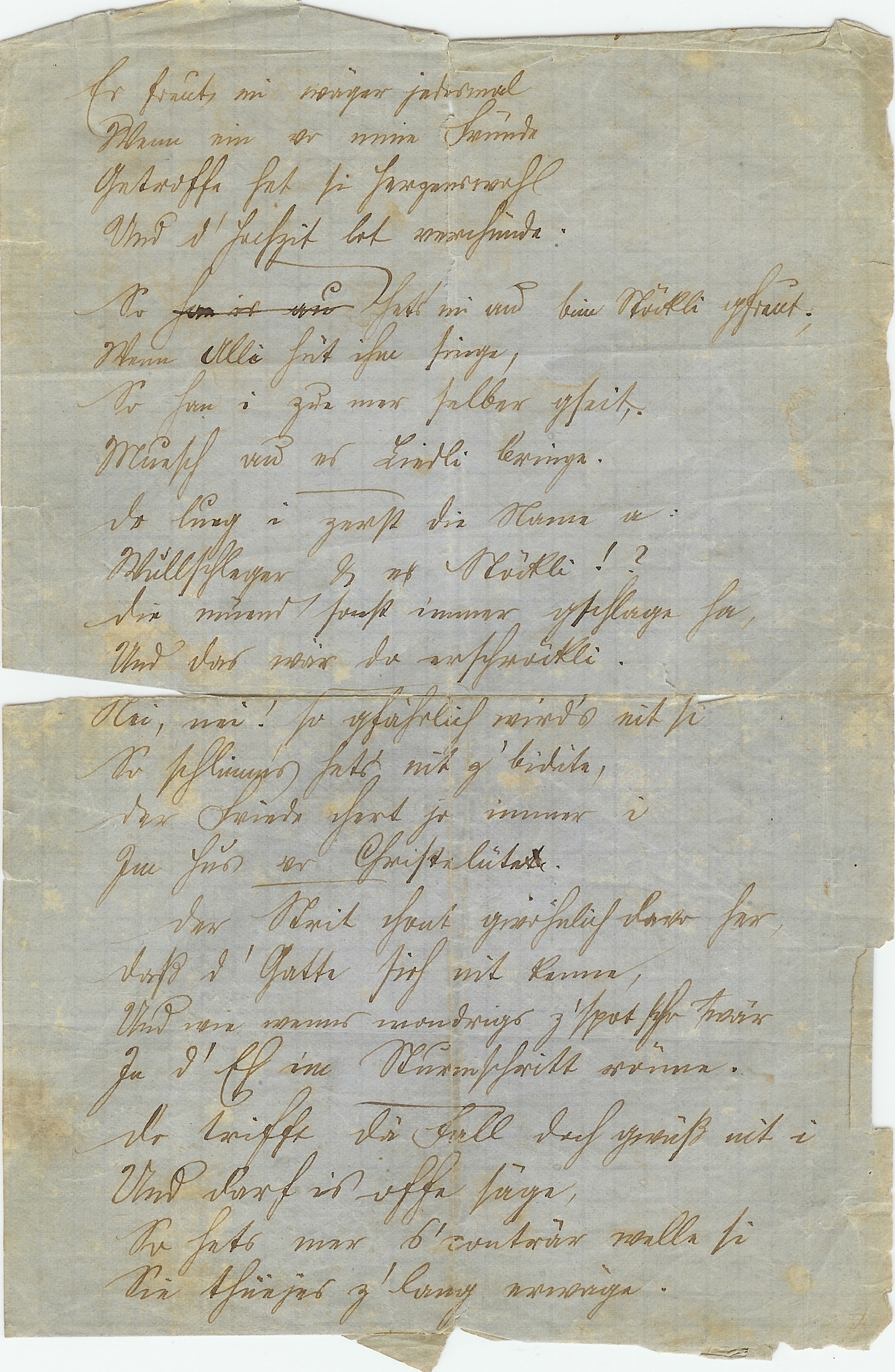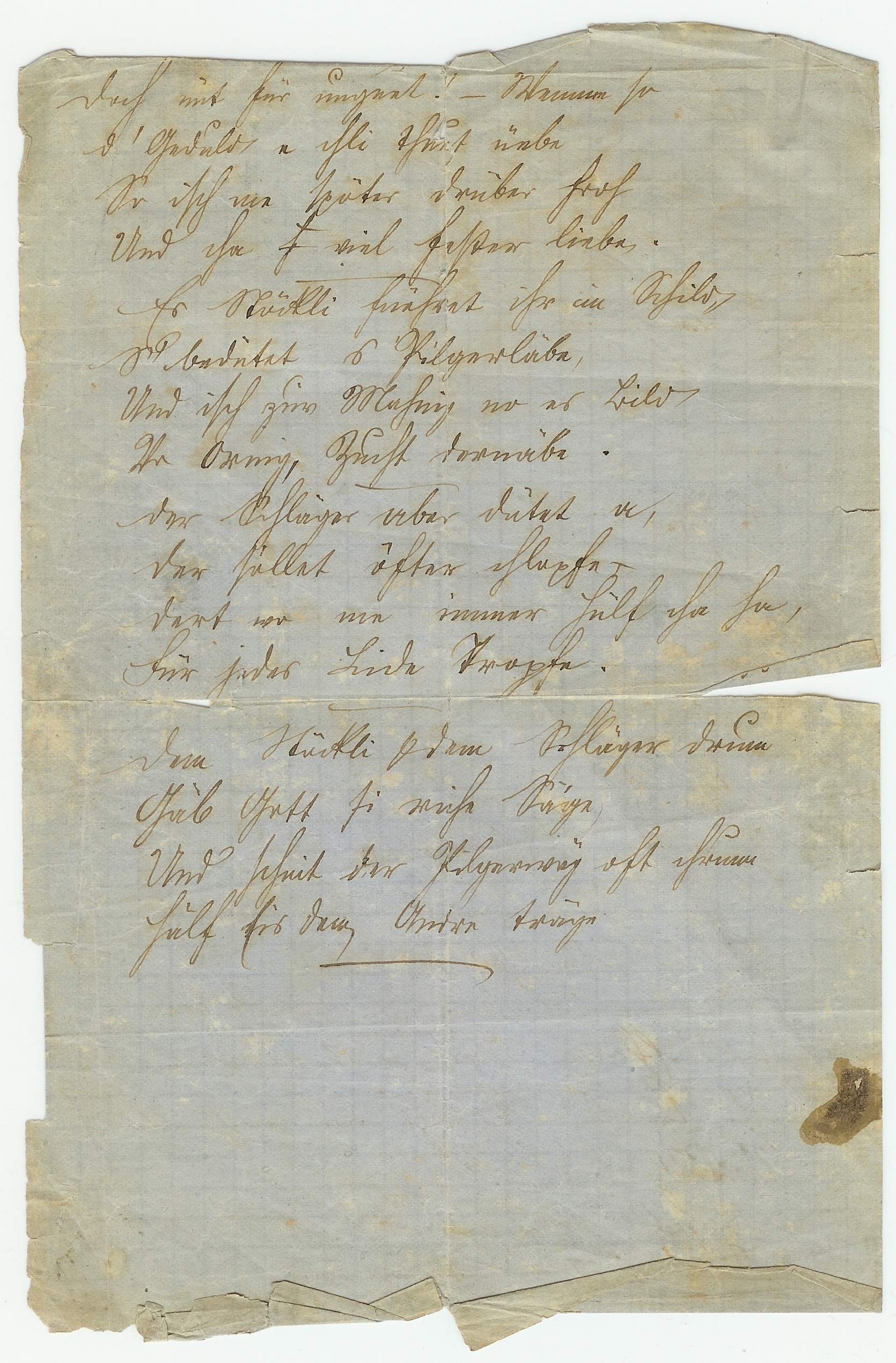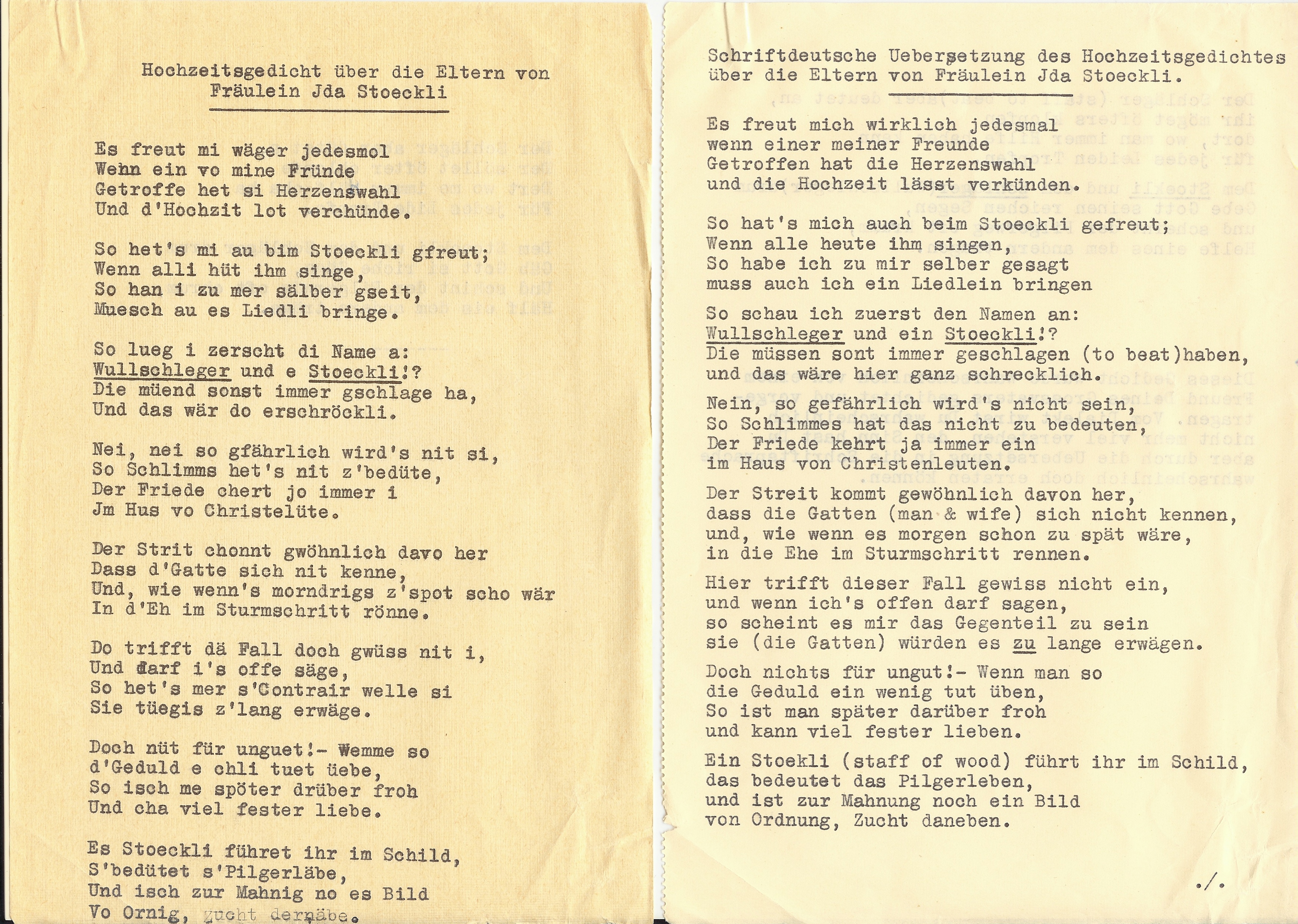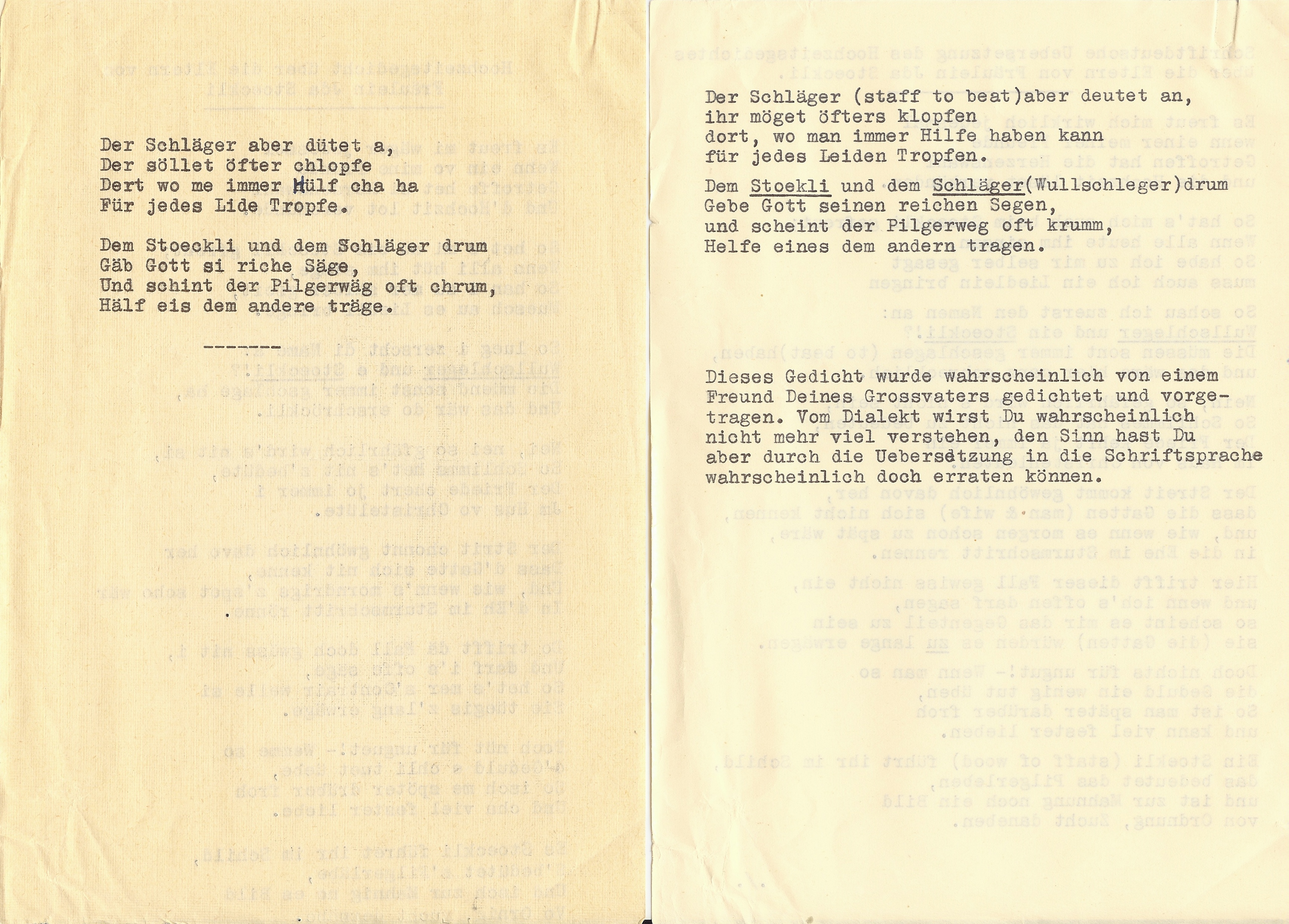English translation of poem about the wedding of Friedrich Emil Stoeckly and Elise Wullschleger. Below the translation are the two pages of the original hand-written poem, followed by two typed German transcriptions of the poem. The left transcription is of the poem itself, while the right one is a transcription into common German. The authors of the poem and of the transcriptions are unknown. The poem was probably kept by Ida Stoeckli until she died, and was then transcribed by one of the Swiss relatives who knew some English and sent to Ruth.
The English translation below is from Google Translate:
Written German translation of the wedding poem
about the parents of Miss Ida Stoeckli
----------
I am really happy every time
one of my friends
has chosen the heart
and announces the wedding.
So I was also happy with the Stoeckli;
If everyone is singing to him today
So I said to myself
I have to bring a little song too
So I look at the name first:
Wullschleger and a Stoeckli !?
They must have always beaten
and that would be terrible here.
No, it won't be that dangerous
It doesn't mean that bad
Peace always comes
into the home of Christian people.
The argument usually comes
that the man & wife do not know each other
and, as if it were too late tomorrow
run into marriage at a storm pace.
This is certainly not the case here,
and if I may say it frankly,
so it seems to me to be the opposite
they (the spouses) have been daring too long.
But no offense! - If you
practice a little patience,
So you are later happy about it
and can love much more firmly.
You have a Stoekli (staff of wood) in the sign,
that means the pilgrim life,
and as a warning there is also a picture
of order, discipline next to it.
But the Schlager (staff to beat) suggests
you often knock there,
where you can always have help
for every ailment drops.
The Stoekli and the Schlager (Wullschleger) drum
give God his rich blessing,
and the pilgrimage often seems crooked,
Help one carry the other.
This poem was probably composed and recited by a
friend of your grandfather's. You will probably
not understand much of the dialect anymore, but
you have probably been able to guess the meaning
through the translation into the written language.







